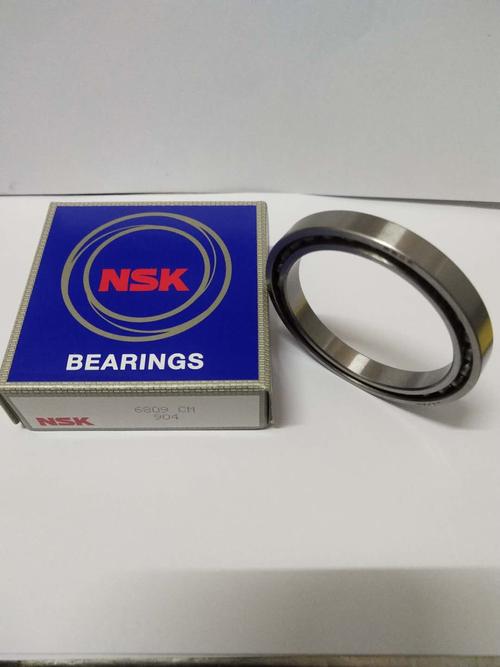Top 5 Benefits of Choosing a Customized Ceramic Ball Bearings Supplier for Your Industry Needs
Customized ceramic ball bearings suppliers specialize in manufacturing precision-engineered components tailored to meet specific industrial requirements. These bearings offer exceptional durability, corrosion resistance, and thermal stability, making them ideal for high-performance applications across aerospace, automotive, and manufacturing sectors.
1. high temperature ceramic ball bearings2. custom ceramic bearings manufacturers
3. ceramic ball bearings for industrial machinery
4. custom-sized ceramic bearings supplier
5. ceramic hybrid ball bearings benefits
1. high temperature ceramic ball bearings

High temperature ceramic ball bearings are engineered to withstand extreme thermal conditions exceeding 500°C without compromising structural integrity. Unlike traditional steel bearings, zirconia or silicon nitride ceramics maintain dimensional stability, reducing friction-induced heat generation. Industries like metal processing and energy production rely on these bearings for furnace conveyors and turbine systems. Their non-conductive properties also prevent electrical arcing in high-voltage environments. Suppliers utilize advanced sintering techniques to ensure uniform density, while custom coatings like PTFE enhance lubrication retention in arid conditions. Case studies show a 40% lifespan increase in kiln roller applications compared to standard bearings.
2. custom ceramic bearings manufacturers
Reputable custom ceramic bearings manufacturers employ ISO 9001-certified processes to deliver components with tolerances under 0.001mm. Clients provide CAD specifications for bore diameters, cage materials, or sealing systems, which are validated through finite element analysis (FEA). Specialized manufacturers offer hybrid designs combining ceramic balls with stainless steel races for cost-sensitive projects. Quality assurance includes 100% eddy current testing for micro-cracks and ultrasonic cleaning to meet medical or food-grade standards. Leading suppliers maintain inventory buffers for urgent MRO demands, with some offering predictive maintenance algorithms integrated through IoT-enabled bearing sensors.
3. ceramic ball bearings for industrial machinery
Ceramic ball bearings for industrial machinery reduce downtime in high-RPM equipment like CNC spindles and centrifugal pumps. Their 60% lower mass decreases centrifugal force, allowing 20% higher operational speeds. In chemical processing plants, full-ceramic bearings resist acid corrosion from aggressive media. Manufacturers often pair them with polymer seals rated for IP68 protection against particulate ingress. A textile manufacturer reported 18 months of uninterrupted operation in loom shuttle mechanisms after switching to ceramic bearings, citing reduced lubrication costs. Suppliers provide vibration analysis reports and custom preload settings to optimize alignment in precision gearboxes.
4. custom-sized ceramic bearings supplier
A custom-sized ceramic bearings supplier addresses non-standard applications requiring diameters from 3mm to 300mm. For miniature robotics, suppliers grind alumina balls to 0.5mm precision using diamond abrasives. Conversely, large-scale wind turbine manufacturers demand bearings with 250mm IDs and C3 clearance grades. Digital configurators allow engineers to input load capacities (dynamic up to 12kN) and PV values for optimal material selection. One mining company achieved 30% energy savings in conveyor systems by upgrading to oversized silicon nitride bearings with reduced rolling resistance. Suppliers stock premium-grade G10 balls meeting ABEC-7 standards for ultra-smooth operation.
5. ceramic hybrid ball bearings benefits
Ceramic hybrid ball bearings benefits include 80% lower thermal expansion rates than all-steel counterparts, crucial for precision optics positioning systems. The ceramic-steel combination cuts weight by 40% while maintaining 90% of steel’s load capacity. Dental drill manufacturers utilize hybrids to eliminate metallic contamination risks. Accelerated lifespan testing shows 3x longer service life under contaminated lubrication conditions. Suppliers apply DLC (Diamond-Like Carbon) coatings to races, achieving a friction coefficient of 0.001 in vacuum environments. A semiconductor firm reduced wafer defect rates by 22% after adopting hybrid bearings with ESD-safe cages.
Understanding these five critical aspects—high-temperature resilience, manufacturing precision, industrial adaptability, size customization, and hybrid advantages—empowers engineers to make informed sourcing decisions. Whether optimizing existing machinery or designing next-gen equipment, partnering with a specialized supplier ensures access to technical expertise, material science innovations, and scalable production capabilities. Continue reading to explore how these factors interrelate in achieving operational excellence.
In conclusion, selecting a qualified customized ceramic ball bearings supplier directly impacts equipment performance and TCO (Total Cost of Ownership). From thermal management to dimensional customization, each discussed factor contributes to achieving superior mechanical efficiency. Evaluate suppliers based on ISO certifications, material traceability, and application-specific testing protocols to secure long-term operational advantages.




 13869596835
13869596835